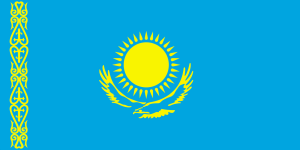Dunsop Bridge is a village in Lancashire. If you visit you’ll find a picturesque English country postcard scene, at the confluence of the River Dunsop and the River Hodder. Puddleducks Post Office and Tea Rooms in the centre of the village will sell you some duck food to go with your pot of tea, to complete the idyll. Dunsop Bridge is also a contender for being the geographic centre of Great Britain, although Haltwhistle in Northumberland contests this vigorously, if not particularly bitterly.
Plainly the cultural, economic and political centre of the nation should lie at  or close to its physical heart. London, then, is in the wrong place. Putting all that activity way down in the South is an error of history rather than a result of careful planning, and Dunsop Bridge should, by rights, step up to claim its place as the seat of the nations power. Such bold thinking is perhaps over ambitious for a Britain that doesn’t like big infrastructure change. In a small country, the value of such a move is also questionable – what we consider an exhausting four hour schlep up the A1 to Newcastle would be like popping to the shops for many Australians. A high speed rail line or two is quite enough to get things moving.
or close to its physical heart. London, then, is in the wrong place. Putting all that activity way down in the South is an error of history rather than a result of careful planning, and Dunsop Bridge should, by rights, step up to claim its place as the seat of the nations power. Such bold thinking is perhaps over ambitious for a Britain that doesn’t like big infrastructure change. In a small country, the value of such a move is also questionable – what we consider an exhausting four hour schlep up the A1 to Newcastle would be like popping to the shops for many Australians. A high speed rail line or two is quite enough to get things moving.
Such papering over the cracks would not work in Kazakhstan. In a country which is itself the size of Western Europe, with economic growth consistently around 10%, massive oil reserves, and big plans for the future, bold steps are often needed. In 1997, the centrally-located town of Akmola became Kazakhstan’s capital, relocating from the former capital Almaty which is in the south of the country near the border with China. In 1998 it Akmola was renamed Astana, meaning ‘the capital’ in Kazakh. Since then it has grown hugely into a modern metropolis.
In December, UCL Medical School Education Consultancy (MSEC) visited Astana. As part of a project commissioned by the Kazakhstan Ministry of Health and Social Development aimed at modernising medical education and building capacity amongst medical educators, Deborah Gill, Ann Griffin and Paul McGovern delivered a three day intensive course looking at aspects of curriculum design, credentialising medical careers and the development of postgraduate medical education. Travel times were long an temperatures hovered around -20 degrees. Given the enormous size of Kazakhstan, delegates for the course – leaders in medical education from around the country – also had significant journeys to make. The MSEC team delivered all teaching with the assistance of simultaneous Russian translation.
Despite the cold and the complexity of communicating through translators the MSEC team had a very warm welcome in the heart of Kazakhstan. From our feedback it seems participants also valued our input and will be able to build on the learning that happened during the intensive course back in their home universities.


Discussion
No comments yet.